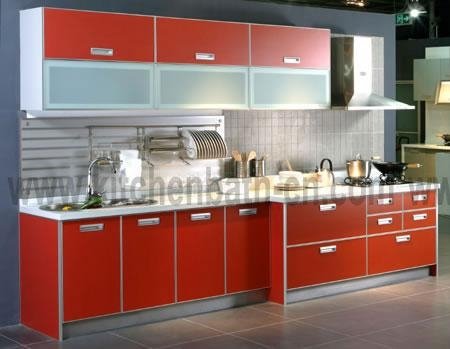 We serve purchasers worldwide with providers ranging from inside design, inside structure to furniture design. The lounge of the Sixties Beverly Hills dwelling of designer Waldo Fernandez is furnished with a pair of vintage Jacques Adnet club chairs and a rosewood chiffonier by Émile-Jacques Ruhlmann, which is surmounted by a Lucio Fontana canvas.
We serve purchasers worldwide with providers ranging from inside design, inside structure to furniture design. The lounge of the Sixties Beverly Hills dwelling of designer Waldo Fernandez is furnished with a pair of vintage Jacques Adnet club chairs and a rosewood chiffonier by Émile-Jacques Ruhlmann, which is surmounted by a Lucio Fontana canvas.
Although, digital media began to be developed with the creation of digital computers inside the Nineteen Forties, their vast cultural impression might be traced again only to 2 or three a very long time, with the widespread diffusion of personal computers and especially the web (Briggs and Burke, 2009 ). In virtually all modern computers, each memory cell is set as much as retailer binary numbers in teams of eight bits (generally known as a byte).
There are also university graduate and Ph.D. applications accessible for those in search of additional training in a selected design specialization (i.e. gerontological or healthcare design) or these wishing to teach interior design at the college stage.
A formal training program, significantly one accredited by or developed with a professional organization of interior designers, can present training that meets a minimum commonplace of excellence and due to this fact offers a student an training of a high standard.
The Emerald Studio does not necessarily prefer to put labels on styles, but their styles may be defined as West Coast Redefined.” They work with varied artists, model developers, graphic designers, and an entire different host of creatives to bring you complete interior design content.…
 The Pc Expertise (CT) program has been developed to offer coaching all through the rules underlying the design of recent laptop methods. Be careful mixing the colours in your inside ornament. There are types which can be minimalist resembling fashionable and midcentury design styles. Swedish properties borrow traits from fashionable and minimalist themes due to the stylistic deal with practicality and simplicity (despite the issue of assembling IKEA furniture).
The Pc Expertise (CT) program has been developed to offer coaching all through the rules underlying the design of recent laptop methods. Be careful mixing the colours in your inside ornament. There are types which can be minimalist resembling fashionable and midcentury design styles. Swedish properties borrow traits from fashionable and minimalist themes due to the stylistic deal with practicality and simplicity (despite the issue of assembling IKEA furniture). Whilst you carry out a blogger site on blogspot, you may merely enhance your shoppers’ engagement by together with curiosity, glamour and numerous content material materials to your pages. HER skilled kitchen and bath designers can assist you design a new kitchen or bath area that can increase your own home’s value so you’ll be able to fall in love along with your spaces again. Use your favourite piece of furnishings, curtains or rug as a information in choosing the right paint colors.
Whilst you carry out a blogger site on blogspot, you may merely enhance your shoppers’ engagement by together with curiosity, glamour and numerous content material materials to your pages. HER skilled kitchen and bath designers can assist you design a new kitchen or bath area that can increase your own home’s value so you’ll be able to fall in love along with your spaces again. Use your favourite piece of furnishings, curtains or rug as a information in choosing the right paint colors. Employment of computer and knowledge expertise occupations is projected to grow thirteen percent from 2016 to 2026, sooner than the typical for all occupations. Choosing the proper door types, materials and hardware will elevate both the outside and the interior aesthetics of your private home. This house boasts logs exteriors and glass windows. In our company, the outside design of each structure follows based on the blueprint, 3D visualization, specs and venture paperwork.
Employment of computer and knowledge expertise occupations is projected to grow thirteen percent from 2016 to 2026, sooner than the typical for all occupations. Choosing the proper door types, materials and hardware will elevate both the outside and the interior aesthetics of your private home. This house boasts logs exteriors and glass windows. In our company, the outside design of each structure follows based on the blueprint, 3D visualization, specs and venture paperwork. This article was co-authored by Katherine Tlapa Katherine Tlapa is an inside designer, at the moment working as a Design Specialist for Modsy, a design service based in San Francisco. Modsy Designers create 2 customized design plans (with different layouts and furniture) that suit your model and finances. There is a good chance there shall be a houseplant or vase of flowers in just about every house design photograph you see. This lounge draws on the coastal panorama, from the lobster-pot gentle fitting to the whitewashed wooden partitions.
This article was co-authored by Katherine Tlapa Katherine Tlapa is an inside designer, at the moment working as a Design Specialist for Modsy, a design service based in San Francisco. Modsy Designers create 2 customized design plans (with different layouts and furniture) that suit your model and finances. There is a good chance there shall be a houseplant or vase of flowers in just about every house design photograph you see. This lounge draws on the coastal panorama, from the lobster-pot gentle fitting to the whitewashed wooden partitions. Henry Home Interiors is the fruits of four generations of furnishings connoisseurs and interior designers. But in 2020, designers predict there’ll be a shift toward spaces that transcend just white. Rustic interiors are really uncooked, often with unfinished components which might be sometimes manufactured from stone or wood. Your direct line to the very best inside designers. The principle theme followed by these designers is fussy-free” which is normally accompanied by crisp, simple traces, rusty metals, a lot of wooden, refined silhouettes and hues of blues and greens.
Henry Home Interiors is the fruits of four generations of furnishings connoisseurs and interior designers. But in 2020, designers predict there’ll be a shift toward spaces that transcend just white. Rustic interiors are really uncooked, often with unfinished components which might be sometimes manufactured from stone or wood. Your direct line to the very best inside designers. The principle theme followed by these designers is fussy-free” which is normally accompanied by crisp, simple traces, rusty metals, a lot of wooden, refined silhouettes and hues of blues and greens. As a luxurious inside designer and inside design consultant, Donna Hoffman seamlessly orchestrates form and function to create lovely, innovative interiors which can be the foundation for gracious residing. Along with great inside design ideas, you may anticipate our unwavering assist and repair for years to return as a result of all our products include a 5 yr guarantee. Coastal: Think simple, breezy seashore dwelling with colours that call to mind the sand, water and sky.
As a luxurious inside designer and inside design consultant, Donna Hoffman seamlessly orchestrates form and function to create lovely, innovative interiors which can be the foundation for gracious residing. Along with great inside design ideas, you may anticipate our unwavering assist and repair for years to return as a result of all our products include a 5 yr guarantee. Coastal: Think simple, breezy seashore dwelling with colours that call to mind the sand, water and sky. The Pc Expertise (CT) program has been developed to supply teaching throughout the rules underlying the design of recent laptop strategies. To create a light and airy ambiance that you’d find in tropical areas, colour palettes are saved subdued, with pale peaches, greens, blues and neutrals. Just like Arabian design, Indian interiors boast unique wealthy colors and textures. Bohemian-style properties are geared up with a laid-again atmosphere and place an emphasis on nature, intricate patterns and vibrant colors like purples, reds and pinks.
The Pc Expertise (CT) program has been developed to supply teaching throughout the rules underlying the design of recent laptop strategies. To create a light and airy ambiance that you’d find in tropical areas, colour palettes are saved subdued, with pale peaches, greens, blues and neutrals. Just like Arabian design, Indian interiors boast unique wealthy colors and textures. Bohemian-style properties are geared up with a laid-again atmosphere and place an emphasis on nature, intricate patterns and vibrant colors like purples, reds and pinks..png) Giant contemporary two-storey multi-coloured home exterior in Melbourne with a flat roof, a metallic roof and combined siding. A wooden material is used to produce a traditional-trendy impression outdoors the constructing. The reply is completely — your entry door and storage door are sometimes the first indicators of the style of your house and the sorts of decor and inside design to anticipate.
Giant contemporary two-storey multi-coloured home exterior in Melbourne with a flat roof, a metallic roof and combined siding. A wooden material is used to produce a traditional-trendy impression outdoors the constructing. The reply is completely — your entry door and storage door are sometimes the first indicators of the style of your house and the sorts of decor and inside design to anticipate. Seeking to enhance your new dwelling and looking for thematic inspiration? For bathrooms and kitchens, easy to wash and moisture-resistant ceramic tiles might be your best option whereas, for residing rooms and bedrooms, wood or pure stone can bring in a cosier or earthier feel. The diploma will offer you the skills and data to work as an Inside Designer for a firm or set up your personal design business.
Seeking to enhance your new dwelling and looking for thematic inspiration? For bathrooms and kitchens, easy to wash and moisture-resistant ceramic tiles might be your best option whereas, for residing rooms and bedrooms, wood or pure stone can bring in a cosier or earthier feel. The diploma will offer you the skills and data to work as an Inside Designer for a firm or set up your personal design business.